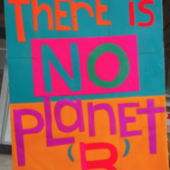Abstract: While it is widely recognized that effectively addressing climate change requires a drastic reduction in carbon emissions, we nonetheless find ourselves in an impasse, unable to imagine nor bring about a post-carbon future. This is, in part, because climate change is not only a technological problem, but also a philosophical, cultural, and aesthetic problem—an existential crisis of thinking, or perhaps unthinking. To unthink the carbon regime, higher education must forge new thought models and educational platforms that operate in solidarity across disciplinary scales and territories. This report documents a collaborative course development process for a grant-funded transdisciplinary course entitled: Unthinking Oil: Public Architecture and the Post-Carbon Imaginary. In particular, we discuss a virtual Unthinking Oil Workshop held with students and faculty from a range of disciplines. The workshop provoked broad discussions regarding the role of higher education in addressing the many entanglements between climate change, society, and the built environment.
Continue Reading
This article attempts to fill a gap in the sociological literature by detailing how I taught a sociology course ‘Society and Climate Change’. I discuss the theories I used to frame my course – Barry Commoner’s laws of nature (1976) and Patricia Hill Collin’s intersectionality (2009) – and then I present and analyze the pedagogical practices I used that attempted to put these two theories into practice by embodying connectedness through love, in order to create what David Korton refers to as an ‘earth community’ (2010).
Continue Reading
This article presents a case study of a collaborative project between the energy manager and a sociology professor at a small liberal arts college. Introductory sociology students designed and disseminated a survey on energy use at the college and found a disconnect between attitudes and behavior in energy use. While these results were not surprising, this exercise allowed the students to not only learn research methods but students also reported an increasing awareness of their own knowledge and practices in using energy. We believe this type of exercise, using one’s disciplinary methods with an engaged learning project, would be a useful vehicle for teaching sustainability in a variety of disciplines not normally associated with the environment or sustainability.
Continue Reading